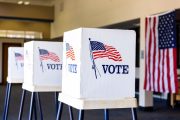
The announcement on Tuesday that Remington Arms had finally settled (some used the words “claimed liability” for) the seven-year-old lawsuit filed by parents of children lost in the Sandy Hook shooting in 2012 was portrayed as a major breakthrough by the anti-gun major media. The settlement, wrote the New York Times, “is a significant setback to the firearms industry.”
No, it is not. The Times explained why: “The lawsuit worked around the federal law [Protection of Lawful Commerce in Arms Act, or PLCAA] protecting gun companies from litigation by arguing that the manufacturer’s marketing of the weapon had violated Connecticut consumer law.”
That’s why the lawsuit has meandered through the court system for seven long years: the plaintiffs had no case. It was the Supreme Court that refused to hear the case on appeal from Connecticut’s Supreme Court, thus allowing the case to proceed. Finally, in exhaustion and not admission of guilt, the settlement was made.
Originally the parents wanted $225 million. But Remington was in bankruptcy and the only asset it had was its insurance coverage from four different insurance companies, which just happened to be the amount of the $73 million settlement.
The Connecticut law involved in the “workaround” is the state’s Unfair Trade Practices Act. Its meaning had to be expanded to include marketing practices that the left-wing state Supreme Court considered illegal: Remington pointed its ads to young men, its most profitable target market. Some of those young men included mentally unbalanced people such as Adam Lanza who saturated his mind with video games that involved firearms.
As John Lott, head of the Crime Prevention Research Center, wrote in USA Today: “There is no evidence that the ads influenced the actions of the Sandy Hook killer.” In fact, Lanza didn’t even purchase the firearms used in the shooting: he stole them from his mother.
Added Lott:
The [Connecticut] state Supreme Court decision [that the Supreme Court refused to hear on appeal] significantly expands the Connecticut Unfair Trade Practices Act. For the first time, the court has allowed the act to be used in cases where there was no “commercial relationship.” The shooter did not buy the gun he used to kill 20 first-graders and six educators at the Sandy Hook Elementary School; his mother did.
It’s clear who the ruling is targeting, and it’s not mentally unstable young men such as Adam Lanza: It’s the gun manufacturers. Jonathan Lowy, chief counsel for the rabid anti-gun group Brady Center to Prevent Gun Violence (“Brady”), clearly stated:
This is an important win for victims of gun violence and the movement to hold the gun industry accountable. It sends a powerful message to these executives — even with your special protections, you can and will be held accountable for gun violence.
Not according to Timothy Lytton, professor of law and expert on the firearms industry at Georgia State University: “Most of the country — or at least half the country — is not looking for ways to liberalize or open the door to litigation. They’re looking for ways to expand gun rights and clamp down on anything that would restrict supply.”
The only state to pass a copycat law like Connecticut’s is New York, which is already notoriously anti-gun. A similar bill has been introduced in anti-gun California, and anti-gun legislators in New Jersey is considering similar legislation.
As crime rises in big cities across the land, the demand isn’t for more restrictions on the right to keep, bear and use firearms, but the contrary. Brady and its sycophants in the media celebrating the “big win” on Tuesday are pushing their agenda uphill against an increasingly informed electorate who know who is threatening their rights.
Related article:



